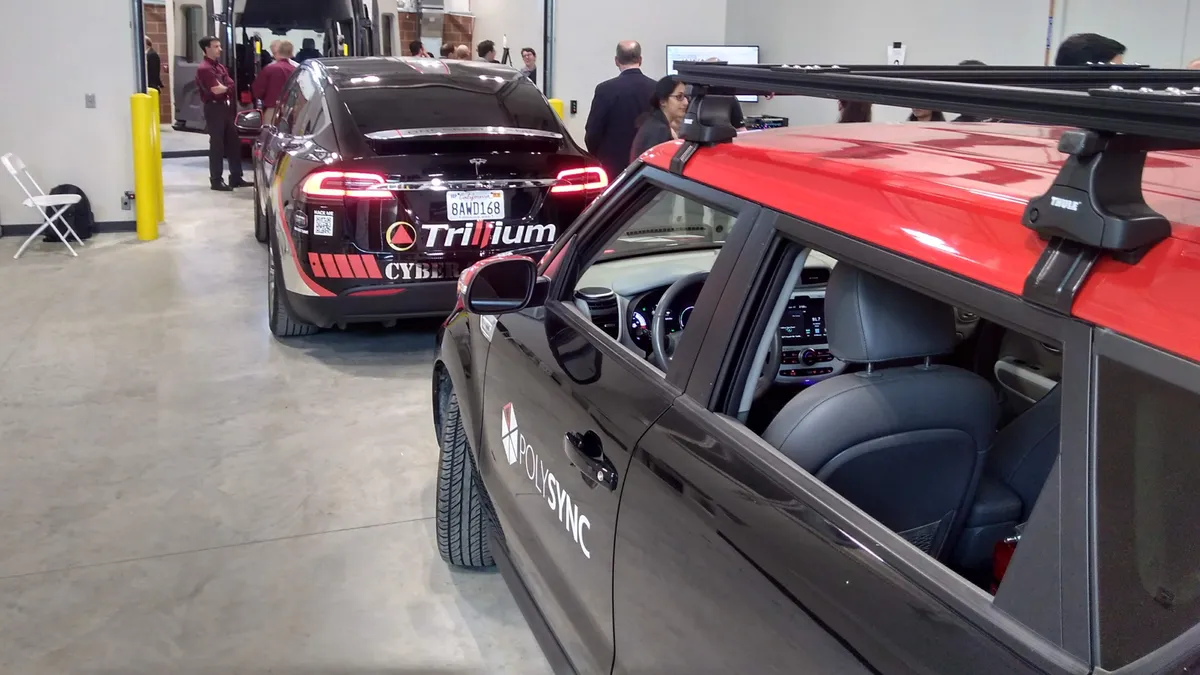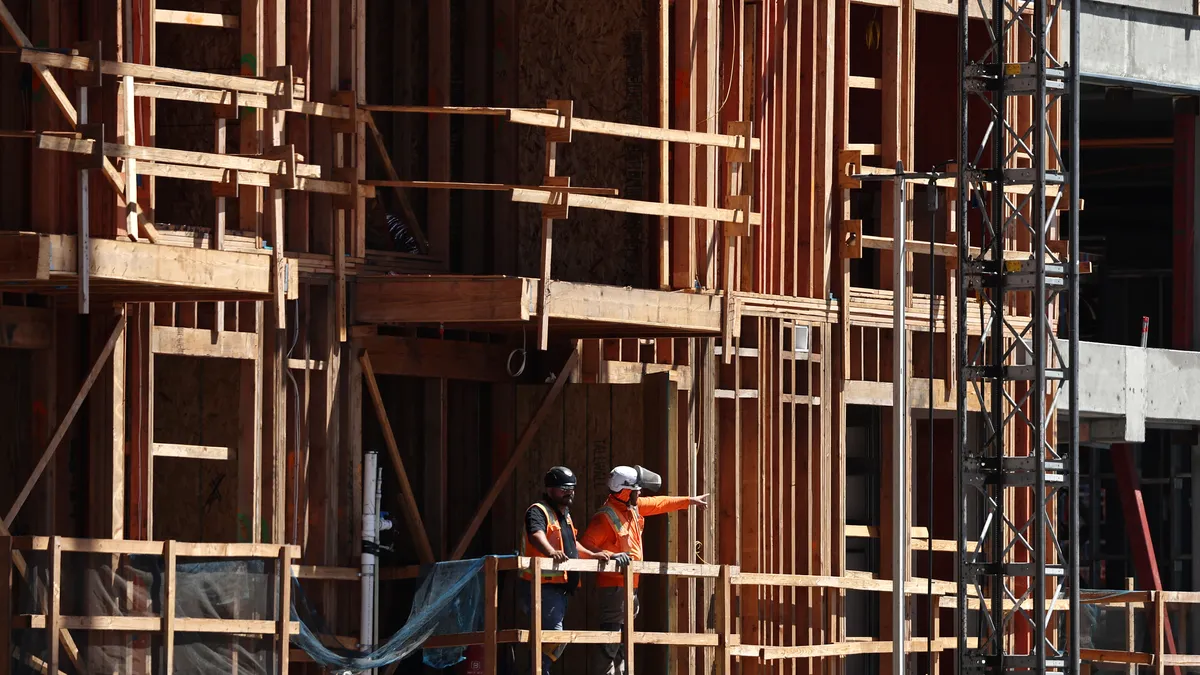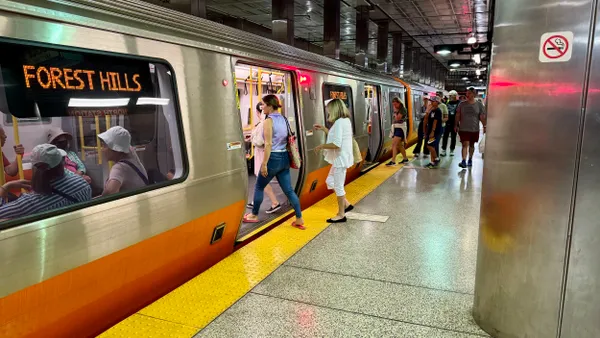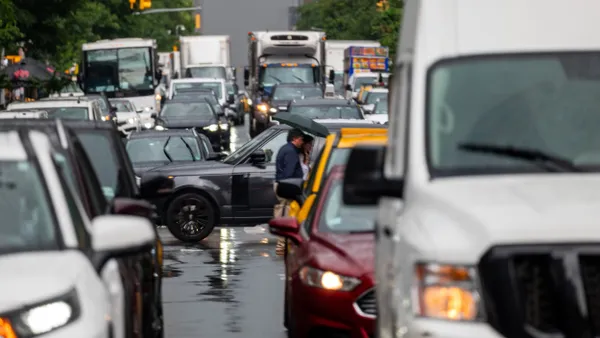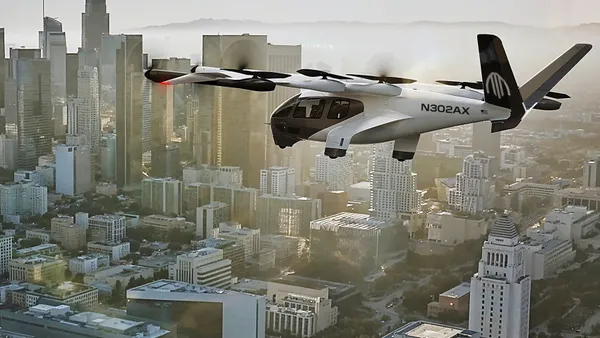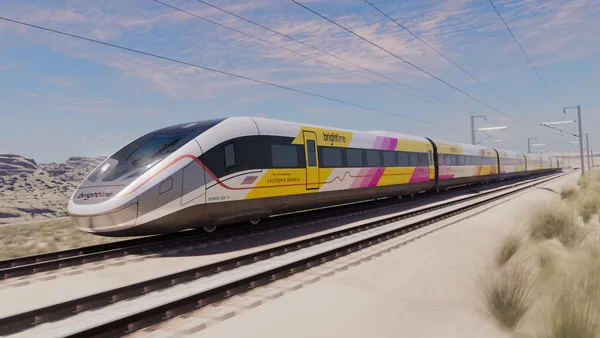Dive Brief:
- Meeting the goals of the Paris climate agreement will require continued technical innovation around electric and clean-fuel vehicles, accompanied by policy and political measures that reduce dependence on cars, according to a new report from the MIT Energy Initiative (MITEI).
- The researchers found that, as populations grow, so will "global demand for personal mobility," and travel in light duty vehicles could increase 50% in the U.S. by mid-century. The emissions impact of that increased travel could be mitigated by more electric and clean fuel vehicles, but only if that is accompanied by more electric infrastructure and a decarbonization of the power sector.
- The study also modeled a future with a low-cost, door-to-door autonomous vehicle (AV) mobility service and found that it could increase congestion, travel times and vehicle miles traveled, while also reducing public transit ridership. Mitigating the negative impacts of the service would require public policy interventions to encourage transit use and reduce private vehicle ownership.
Dive Insight:
Transportation has overtaken electricity as the largest source of greenhouse gas emissions in the U.S., and governments have focused significant attention on cleaning up vehicle fleets and promoting electric vehicle (EV) infrastructure.
The most significant policy step to reduce transportation emissions has been nationwide fuel economy standards, which the Trump administration is reportedly set to roll back (California and 22 other states, the District of Columbia and two cities have sued the administration to restore California’s right to set its own standards). But even while cities have taken smaller steps, like adopting EV incentives or requiring that municipal fleets go green, the MIT study makes clear it will take an economy-wide effort.
"It does look like we are on a path to electrification, but the speed and magnitude of that is dependent on policy support, subsidies or support in the form of building out charging infrastructure," Joanna Moody, the coordinating author and the research program manager of MITEI's Mobility Systems Center, told Smart Cities Dive.
Moody added that the benefits will also only be felt if electrification of vehicles is accompanied by a transition to clean energy, because an uptick in charging from coal-burning power plants will only shift, not eliminate, emissions. "To see the benefits, you need these systems to co-evolve," she said. "So as you look into the future, you also have to think about alternatives like hydrogen fuel and other options that could infiltrate the transportation market."
The report not only looked at economic factors, but also cultural shifts that could influence mobility and transportation choices (that included "car pride," or vehicle ownership as a status symbol, which the researchers say is high in developing countries and could lead to a greater increase in car ownership as economies scale up).
Even in urban areas with robust public transit, the researchers project that easy availability of a door-to-door, low-cost AV network, like the taxi service being piloted by Waymo, would divert people from transit or more active forms of transit. That, the report finds, could create a "congestion disaster" in large cities, one that will require direct policy intervention to avoid.


